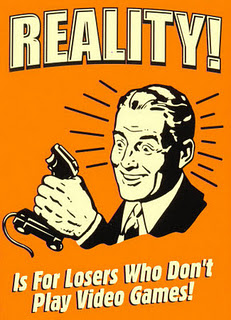Lesson 17: Social Groups and Social Control: Family, Friends, and Media
Attention

Although family remains a central aspect of a child's socialization...they also develop an ever-expanding social network of friends, schoolmates, other adults, and media.
Despite our best efforts, these other groups influence our kids! Maybe that is a GOOD thing!
Learning Outcomes
Upon completion of this lesson's material, students will be able to:
- Identify the benefits of having friends and/or being popular
- Identify how peers influence one another
- Identify the benefits and risks associated with media, television, and computer games
Teaching
Friendships

As children's social world expands, they begin to form emotional ties with individuals outside of the home. Friendship is characterized by a voluntary relationship between two people involving mutual liking.
Friends tend to be similar in their interests and personalities...sociologists call the process of picking friends who are similar to us "niche picking".
Friends are usually alike in many ways:
- age
- gender
- race
- socioeconomic status
- attitudes toward school
- recreation
- drug use
- plans for the future
Friends and peer groups influence each other in the areas of "deviance" from the values and norms of the family, and in terms of "career and ambition".
We will see more of this when we talk about adolesence, the time at which we might see a bit more "deviance" and a time when we are very concerned about planning for the future!
Social Groups
Gender differences among groups of boys and girls are very obvious. Keep in mind that each group has a culture of norms, expectations, roles, and leadership...this constitutes the group structure.
Peer pressure is the process by which groups exert a degree of control over their members to comply with behavioral expectations that define membership in the group. (i.e. stay in line if you want to stay in the group!)
Having the right social skills can lead to a child being "popular" whereas having the "wrong" social skills can lead to children being "rejected" by their peers.
The origins of rejection are clear: socially awkward, aggresive children are often rejected because they rely on aggressive interpersonal style, which can be traced to parenting.
Media
 |
 |
There is a lot of controversay about the overeall impact of media on children. Since the average child will spend 20,000 hours in front of it, television is considered a major contributor to socialization of children.
Television, the media, and computer games teach values...the values that are ascribed in the actual shows and games.
What expectations of the world can a child learn by watching a lot of television?
What expectations can a child learn about gender roles in a video game?
How does watching TV and playing video games change the way children engage in recreation?
Assessment

Lesson 17 Discussion
There is a lot of controversay about the overeall impact of media on children. Since the average child will spend 20,000 hours in front of it, television is considered a major contributor to socialization of children. Discuss the following statements and questions:
- Television, the media, and computer games teach values...the values that are ascribed in the actual shows and games.
- What expectations of the world can a child learn by watching a lot of television?
- What expectations can a child learn about gender roles in a video game?
- How does watching TV and playing video games change the way children engage in recreation?